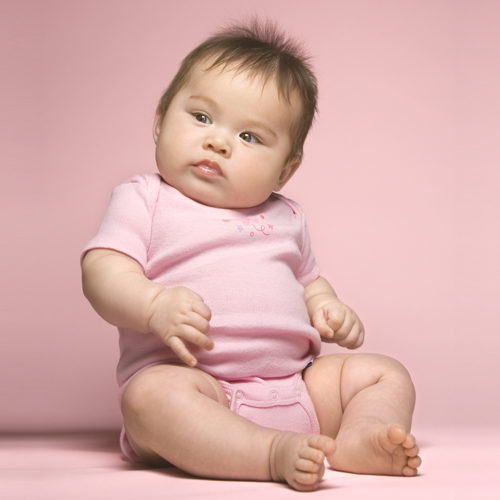Congenital torticollis: when a baby’s neck is tilted

Torticollis is a condition that occurs when an infant’s neck is deformed, causing the child’s head to tilt to one side. It’s relatively common and usually noted within three months of life.
What causes congenital torticollis?
Torticollis means ‘twisted neck’ in Latin and is caused by swelling in one of the muscles on the side of the neck. As a result, the muscle shortens and pulls the neck in one direction. This swelling often happens because the baby was cramped up or in an unusual position in the womb.
How do I know if my baby has congenital torticollis?
Congenital Torticollis causes a baby’s head to tilt to one side and limits mobility, so they may have difficulty moving their necks. They may also have a small harmless lump on the side of their neck that will resolve on its own over time.
Babies are often diagnosed with the condition at 6-8 weeks through an x-ray scan of their neck.
Is the condition painful?
No, their tilted head position may look uncomfortable, but the condition is painless.
How is congenital torticollis treated?
Gentle stretching exercises, along with tummy time, will usually eliminate the condition. Babies will also be encouraged to sleep on their backs with their heads turned to the opposite side of the strain. In severe cases, a physical therapist will also supplement home treatment with extra strengthening exercises. Untreated torticollis may result in facial asymmetry, flat spots on the baby’s head, and restricted head movement. In rare cases, the misaligned neck may occur in tandem with other conditions such as dwarfism, a spine abnormality, or bone-growth disorder.
What if the condition doesn’t resolve within a year?
The primary pediatrician may refer the baby’s parents to an orthopedic surgeon to perform a type of muscle-release surgery to restore the baby’s mobility.
Who is at risk?
Larger babies or twins cramped up in utero have a higher chance of developing congenital torticollis. Other risk factors include births assisted by forceps or vacuums.
Verified:
Dr. Piyawut Kreetapirom, MD. (31 March 2021)



